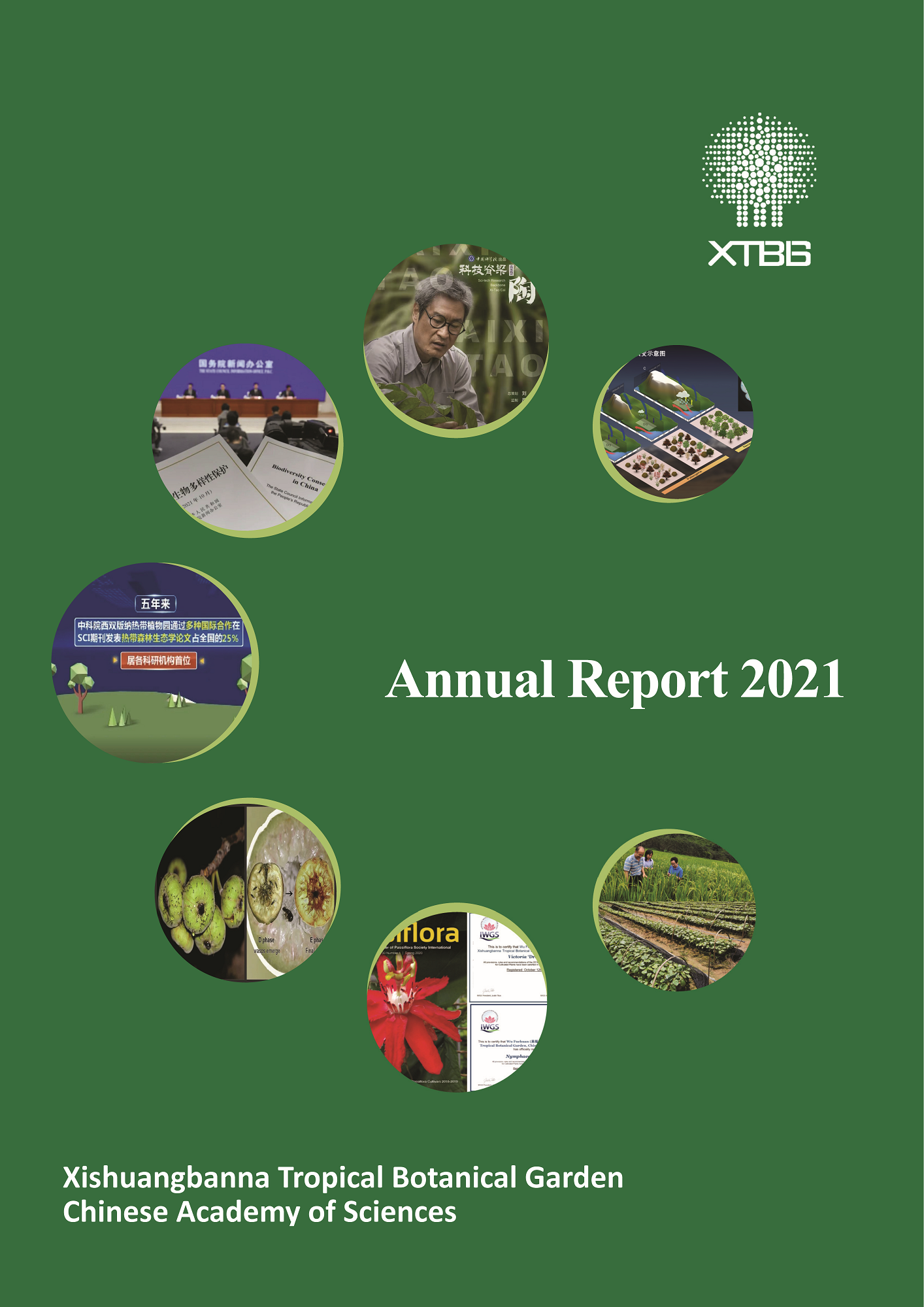The year 2021 witnessed smooth development of Xishuangbanna Tropical Botanical Garden (XTBG). The directorate was reshuffled and new leadership formed. Prof. Chen Jin ceased his role as director after 15-year continuous service. On May 14, Prof. Yang Yongping was named as director of XTBG. He and other leaders are expected to guide XTBG to new development.
In 2021, XTBG received 110 million Yuan in research funds for 132 new projects, got 398 research articles published in internationally peer-reviewed scientific journals, 1 monographs published, 8 patents authorized, and 3 new plant varieties registered, etc.
In the white paper entitled Biodiversity Conservation in China released by the State Council Information Office of the People’s Republic of China, the work of SEABRI was selected as a case study. The orginal text “The Southeast Asia Biodiversity Research Institute of the Chinese Academy of Sciences (CAS-SEABRI) was unveiled in 2015 to carry out joint field studies, major scientific research, policy consultation, and personnel training” was listed in the contents of “Further Global Cooperation on Biodiversity Conservation” of the White Paper.
In 2021, XTBG published their research results in such journals as Science Advances, PNAS, Plant Cell, Nature Communications, Global Change Biology, Systematic Biology, Ecology Letters, New Phytologist, etc.
In a study published in PNAS, XTBG researchers and their collaborators discovered that the lack of sanctions in local hosts promotes the loss of specialized morphologies and behaviors crucial for pollination and, thereby, the evolution of cheating in fig-wasp mutualism.
In a study published in Science Advances, growth of northern Tibet was proved to be the key to East Asian biodiversity. XTBG researchers and their colleagues revealed the first direct mechanism explaining how the growth of mountains in Northern Tibet drastically altered climate, vegetation, and plant diversity in East Asia.
XTBG also made great progress in studies on transboundary biodiversity conservation, fig-wasp pollination, global change biology, plant physiological ecology, iron deficiency, abscisic acid signaling, legume plants, and so on.
Meanwhile, XTBG has developed well in plant reintroduction, academic atmosphere, partnership, talent training, graduate education, science communication, landscaping, and species conservation, etc. For more information, please refer to our Annual Report 2021.

Annual Report 2021

